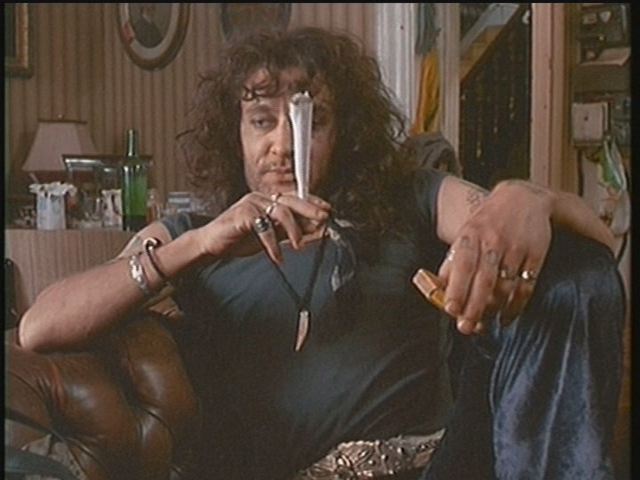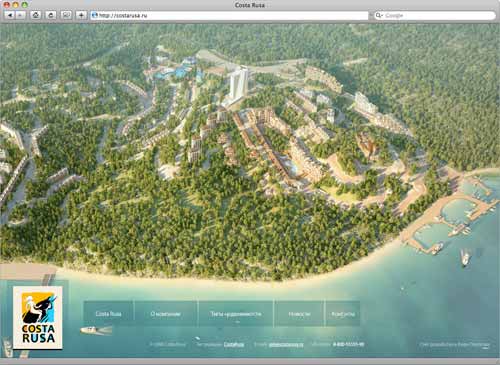As I read Mr. Corum's post "The neo-Tsarist Russian empire is an increasing security problem for the West" in the Telegram
, I thought about a British film I saw years ago, Withnail and I. The main character and his friend, Wtihnail, are two actors struggling to survive in 1969 London. The film was very funny and eventually became a cult hit. As I read the post, I found myself repeatedly thinking of Withnail's answer to a statement he found absurd and pretentious: "What absolute twaddle!"
Of course, there is an American expression that is roughly equal, but I think that Withnail's comment pretty well sums up what I think about Mr. Corum's column, except that I believe his points are much more dangerously askew than those of Withnail's friend.
I lost count of the number of times that Mr. Corum states conclusively that some future event "will" happen. Even the most seasoned analyst usually writes in less certain terms. There are too many variables to state with such certainty so many future outcomes.
He describes Russia outside of Moscow and Saint Petersburg as a "Third World" of poverty and misery. I live in Russia and outside of those two cities. While it is not Malibu or Park Avenue and there are many problems, it is not the place of Third World misery that he imagines. He also wonders why Russia has a belief in itself as a great power. How about the largest land mass in the world? 145 million people with a very important cultural, historical and intellectual legacy? The most natural resources of any nation?
In Mr. Corum's post, he says "Russia will adopt a more aggressive policy in the Caucasus in regards to Georgia and the two Russian-occupied breakaway regions of Abkhazia and South Ossetia." Has Mr. Corum even been to either place? I have been to Abkhazia and know it well. Abkhazia is not an occupied nation. In 1992, Georgia attacked Abkhazia, Earlier, Georgian leaders made genocidal threats and spoke of the illegitimacy of the Abkhaz in their own land. After the Georgian Army was driven out, the Russians acted as peacekeepers in both South Ossetia and Abkhazia for 15 years. Russia actually enforced an economic blockade on Abkhazia until 1999 in deference to Georgia and the CIS. After years of Georgian threats and the unprovoked attack on South Ossetia (confirmed by an EU Commission report) by Georgia in 2008, Russia has recognized both nations and has given aid and military protection, including an army base in Abkhazia, to prevent further Georgian aggression and bloodshed. Abkhazia has a democratically elected government and sets its own course, just as many nations with protective American bases set their own course. But a double standard is applied to Russia.
Mr. Corum calls Belarus a "satellite state" of Russia, but gives no evidence. Belarus has a different political and economic system than Russia and pursues its own domestic and foreign policy. While there has been cooperation, the recent dairy product and natural gas rows show that Moscow does not call the shots. I am not endorsing the Communist Belarusian government, only pointing out what is obvious. Mr.Corum also states that Ukraine "will" become a "satellite" of Russia because of the recent Ukrainian election, but he ignores the centuries of shared historical, political, religious, linguistic and familial history of the two nations. I spend a lot of time in Russia and Ukraine and many in both nations have ancestors in the last 2-4 generations from the other. It is difficult for those unfamiliar to understand the special relationship between Russians and Ukrainians. While Ukraine may turn its orientation more towards Russia, sooner or later that was likely to happen. It does not necessitate that Ukraine will become a Russian satellite. But here, as in most of Mr. Corum's claims, there is an entirely different standard applied to Russia.
He sees ill intent on Russia's part in the customs union with Kazakhstan and Belarus. Should Russia not be free to do this, just as the US has joined NAFTA, the WTO and European countries have formed the EU? The Kazakh President believes that the 3 nations will enjoy a 15% increase in GDP by 2015 as a result of the customs union. But in this, Corum visualizes a neo-Soviet state arising.
The same holds true for Russia's naval base in Ukraine. Despite the ties between Russia and Ukraine and the long Russian presence in Crimea, Mr. Corum sees this as evidence of Russia dominating Ukraine. America has bases in a lot of countries and I don't recall anyone describing Japan or the U.K. as satellites. In reference to Ukraine, he even calls it " the Ukraine", the common usage of which ended shortly after the Soviet Union dissolved and the Cold War ended. But then Mr. Corum's mindset is firmly grounded in a Cold War mentality.
In Mr. Corum's view, all about Russia is a zero-sum, Cold War, neo-Tsarist scenario. He talks about the usage of a centuries old Russian symbol, the two-headed eagle as evidence. However, he ignores what any serious discussion about Russia should not: the invasions and catastrophic, unparalleled losses that inform Russian views. For 50 years or so American foreign policy was dominated by realpolitik. American policy-makers, left and right, thought about how their actions would be viewed and the resulting reactions. However, the neo conservative ideologues who dominated the Bush Administration pursued policies that have severely damaged America's economy, her prestige and resulted in much higher tensions with Russia.
Russia's leadership and its population have concerns about encirclement and attack. For this reason, the American bases in the former Soviet satellites of Poland, the Czech Republic, Romania and Hungary,those nations acceding to NATO and the proposed bases in Georgia and Central Asia (parts of the former Soviet Union) are a nightmare to the Russians (imagine if Arkansas, Mexico and Puerto Rico had joined the Warsaw Pact). At the same time, writers like Mr. Corum hypocritically condemn Russia for doing exactly what America is doing: seeking military bases in former Soviet Republics.
The recent decision by the Obama Administration to drop the missile shield alignment in Poland was widely praised in Russia. As a result, the Russian government has given the U.S. reason to hope they may help apply leverage with Iran. Prominent neo-cons and hawks at the time excoriated the Obama Administration, but paid no attention to the fact that majorities in both Poland and the Czech Republic were in favor of scrapping the plan. The reason? They know that encircling and provoking confrontation with Russia is a bigger risk to their security, their economies and energy sources. it is quite obvious that the Bush Administration lost all leverage and persuasive powers with Russia due to their policy of encirclement and isolation. But Mr. Corum's prescription is to pour the coals on and double down on a policy that has absolutely failed. Not only that, but many in Russia think that these policies are evidence of a new Cold War. Is Russia truly the enemy of the United States? Or are people like Corum still stuck in the Cold War paradigm? Or is it just that the military-industrial complex needs to find enemies?
As an American patriot, I do not like policies that damage our standing in the world and, however well-intentioned ,make it a less safe and more hostile place. As an American in Russia, I am often asked by Russians "Why does America not want to be friends with Russia?" I always tell my Russian friends that I have a fundamental disagreement with my countrymen who support policies that isolate and escalate a new Cold War with Russia.
 Post a Comment
Post a Comment  Sunday, February 21, 2010 at 12:32PM
Sunday, February 21, 2010 at 12:32PM 











